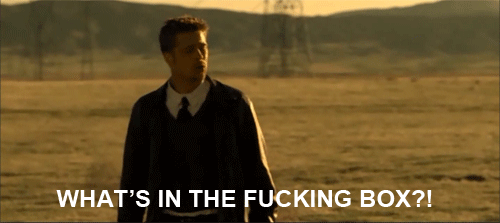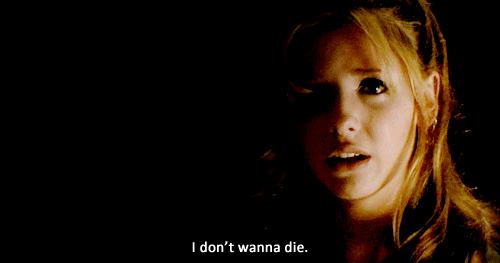How to write a good major story plot without messing with the minor plot lines
So first of all, what is the story plot?
A story’s plot is what happens in the story and the order it happens in.
The essence of the story is that something has to happen, something has to change. Something goes from some kind of change to its escalation, then climax moment and resolving the situation.
This change could be:
- A physical event . Start - MC is arrested for a murder, that he/she didn’t commit. The end - the real killer is found and MC is acquitted. Example: “Seven” movie.

- A decision . Start - MC is forced into arranged marriage. The end - MC decides to leave town with her family’s gardener. Example: “The Invention of Lies” movie
- A change in a relationship . Start - MC hates the guy/girl. The end - MC falls in love with him/her. Example: “Friends with Benefits” movie.
- A change in a person. Start - MC has some deep psychological problems and struggles with them. The end - MC goes nuts and blows up the small suburban town before riding into the sunset. Example: “Rocky Horror Picture Show” movie.

- A change in the reader’s understanding of a situation. A bit like the first example with the false accusation, but the difference is that in the beginning reader doesn’t know it, but only finds out the truth at the story end. Example: “Crimson Peak” movie… Maybe?
- This change might be as well the realization that nothing will ever change. MC has some kind of dream, that she is trying to achieve through the story with shifty success, and in the end, she realizes that she failed and can’t change anything. Example: “Requiem For a Dream” movie.
Basically, the plot is the road that leads from some kind of conflict to its solution or realization of lack of solution/giving up.
Happiness is so last season…
OK. So I gotta say, even real life would suck if it was just happy.
A small moment of mushy philosophy. Crap, that happens to us makes happy moments more exciting, more meaningful and memorable. Constant happiness would bore us to death. Just as much as we need a tiny, or a whole tablespoon of crap in our lives, we need it in stories, and movies and games. Happiness that comes without struggle is just a coincidence. It gains some meaning when you have to fight for it, overcome something. Same applies to stories.
No one wants to read stories about people just being happy. Happiness doesn’t develop persons, it doesn’t change them. And we want to see changes, even bad ones.
Why am I saying it? Well, I’m sure some of you, or I’d say the biggest part, at some point was reading a story, and it was great, and had a lot of drama, and the conflict is solved, and MC and her friends/family are happy… And yet they won’t finish the story. It gets boring quite fast. So yeah, I kinda get big authors, who are milking this whole thing and want to drag the story as long as they can. But there’s gotta be closure when the plot came to conclusion. I can’t even count how many stories I have dropped when this kind of things happened, and I gotta tell you, I don’t bother to check these author’s stories anymore. Know when to stop.
How to come up with the plot?
The most logical thing is to start with your character.
Now there are a couple of ways to go from. Think about:
- What’s something MC really wants? What difficulties might get in the way? In these difficulties, you might find this conflict. Example: “The Black Swan” movie
- What would force MC to do something he or she is really uncomfortable with? Something he or she doesn’t feel capable of doing? Create this situation, and you’ve got a conflict. Example: “Buffy TVS” TV series

- There might as well be some external situation, that is escalating without MC affecting it, but this external situation will directly affect MC and will force him/her to act, to change for better or worse. Example: “Hunger Games” movies.
How to plan your plot?
OK. So you’ve figured the story plot, and you created different interesting characters with the help of questionnaires . Now what?
Here’s the simplest way to build the plot structure:
- The reader gets to know your characters and to understand the essence of the conflict. And the thing in this step is to show it, not just tell it like many authors love to do. To explain this. You can say that character is badass in your narration. But without showing it, these are just dry words and a very lazy approach, that won’t build an emotional connection between the reader and MC. Take some time to show what the character/characters are all about. Show how this conflict affects MC and other characters. What this conflict brings out in them.
- Now, you have to build up the conflict to a crisis point, where things just can’t continue the way they are. This is the climax point . Something has to change. Maybe MC itself has to change, maybe he/she have to make a crucial decision to solve some major external situation. I’m gonna go with my love BTVS to show examples . If we are talking about the first season - when Buffy finds out she is destined to die. This is the climax, that requires some kind of decision. Is she gonna try to kill the Master anyway, or quit the whole slayer thing? Or 5th season, where Dawn is captured by Glory, and something is gotta be done to save her and the world.
- The story’s resolution. And it all depends on how the climax played out. Everything character did, every change he/she got through, every sacrifice is leading to this point.
Before you even start first lines in your stories you have to go through these points and write them down. This way you won’t get stuck with the plot , you will avoid many possible plot holes, and this will help you to build better minor plot lines, that will complement the major plot.
Minor plot lines
I won’t focus much on them this time, just a brief comment.
In my opinion, you have to have some minor plot lines along the major one, they can definitely make the whole story much more enjoyable. Also, more, different minor plot lines will help you to capture a wider audience.
Your plot is about some major political conflict? Or maybe apocalypse? This will grab the attention of one small reader part. Add romance! Not just some happy sloppy romance, but some kind of conflict revolving around romance, that will add to MC misery, will help to develop her/him more, that will bring some qualities in him/her that will help to deal with the major conflict. There might be family drama . There might be also the betrayal of a friend , or sickness that will force MC to act differently. These minor conflicts will help you to add depth to your characters. No one says that the conflict have to be about MC. Some minor plot lines might be based on secondary characters, that will somehow affect MC.
There are so many possibilities. But you have to write it all down, and see if these minor plot lines are compatible with the major conflict , if they won’t contradict it, if they will help you to move character towards your desirable climax and end of the story in a most realistic way.
And remember that you don’t have to drag minor plot lines until the very end of the story. You can resolve them in the middle of the story, or at any other point.
